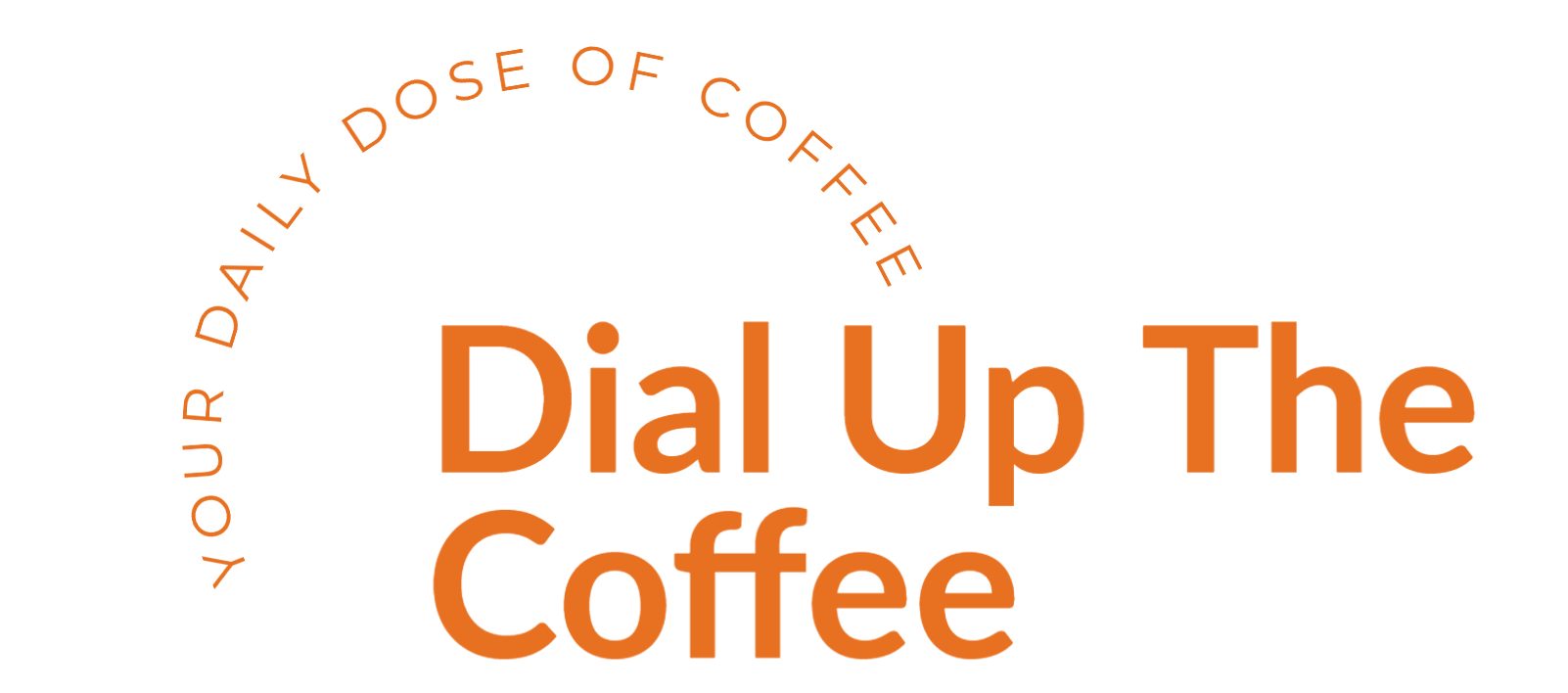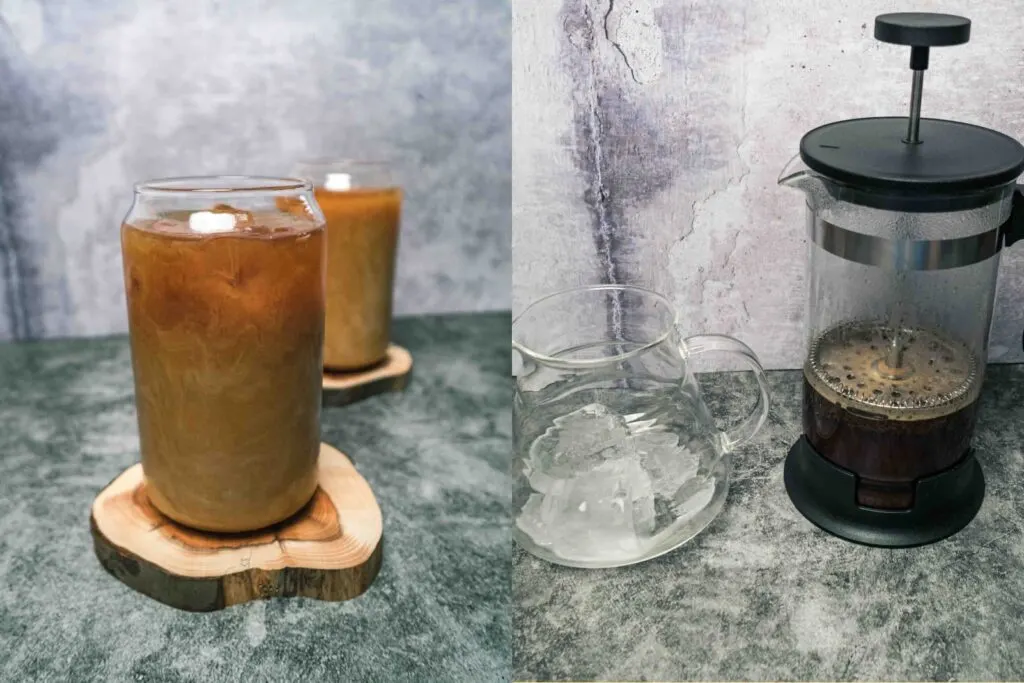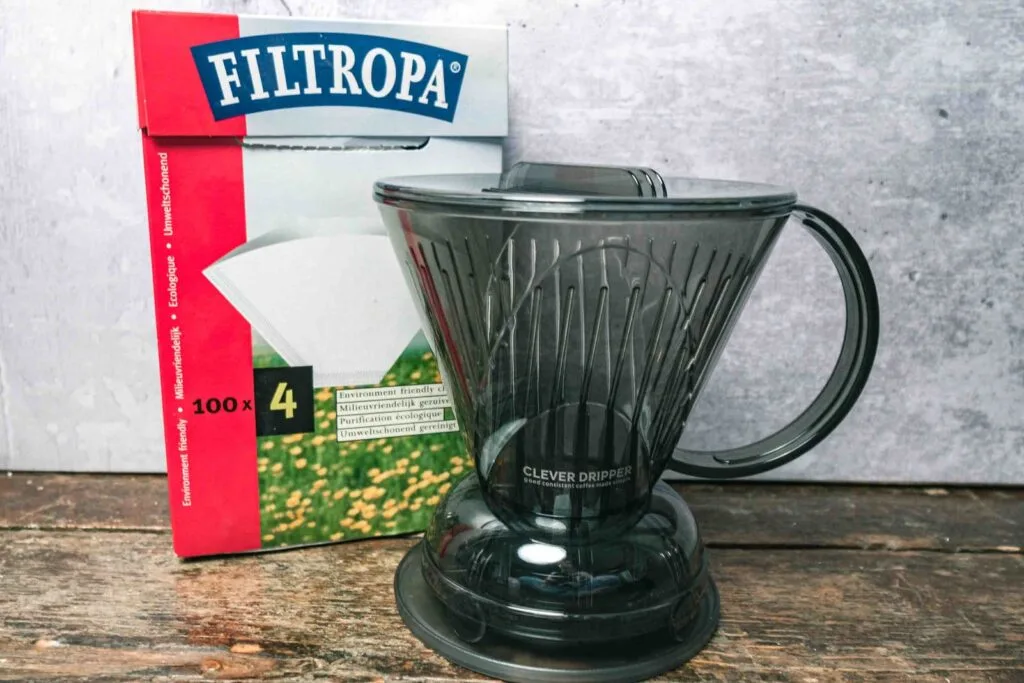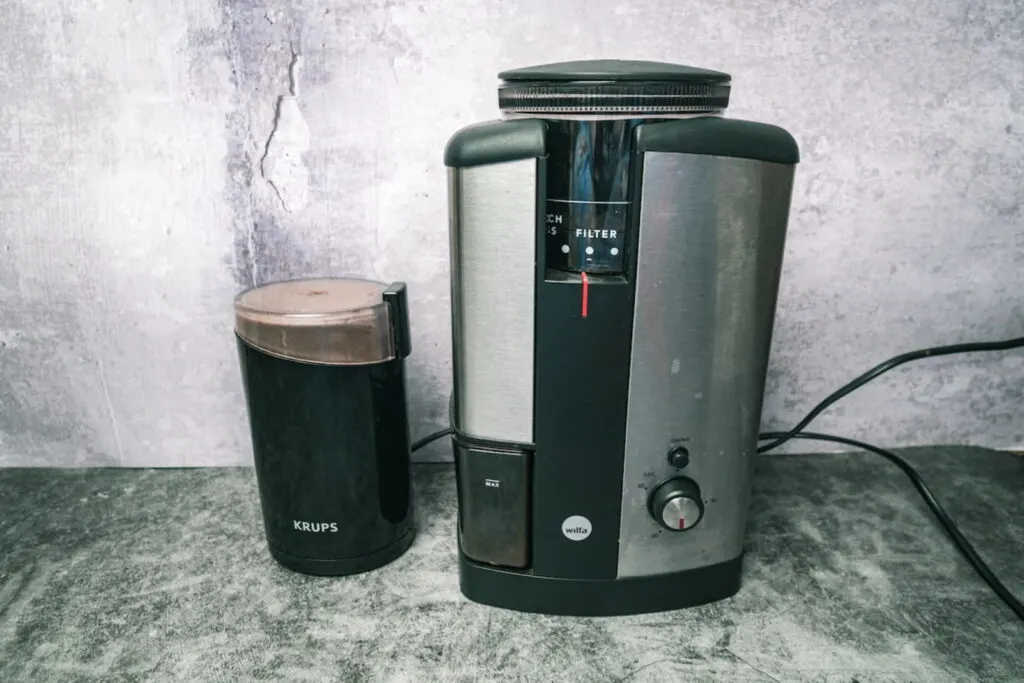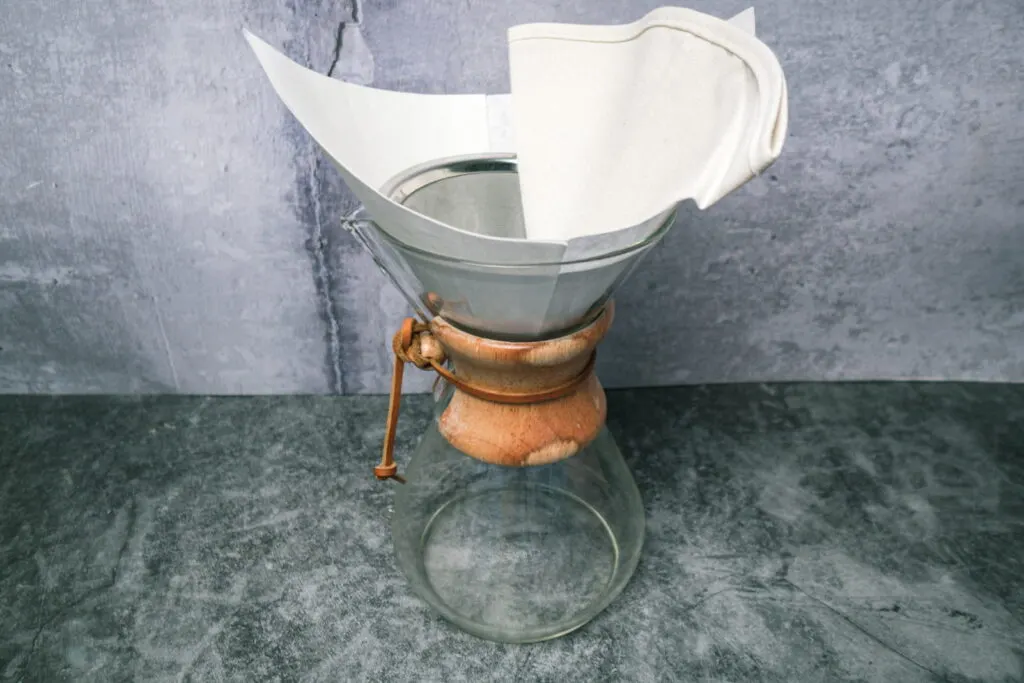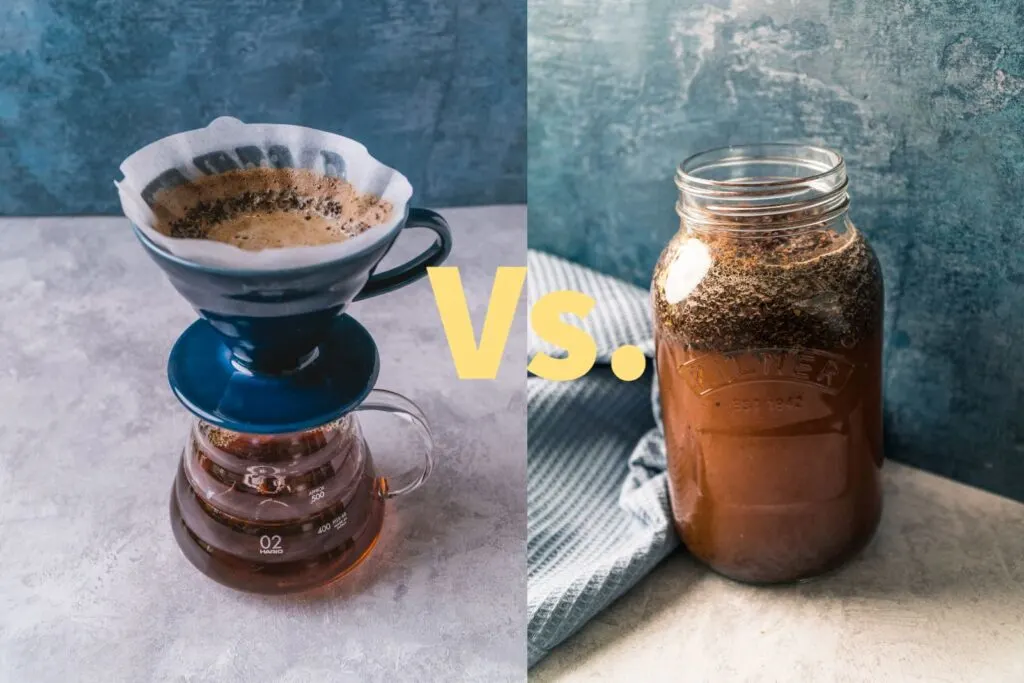Coffee and tea are two of the most popular beverages in the world, each with their own physical, mental, and health benefits. And coffee lovers and tea enthusiasts will defend their favored drink till they run out of breath. But it’s time to settle this debate once and for all.
Is coffee or tea better for you? Both coffee and tea have their own benefits as well as their own purpose. For example, coffee is better if you want something to perk you up and tea is better if you want just to sit down and read your favorite book.
But sometimes, coffee will have a slight advantage over tea and vice versa. Whatever your choice of drink is, find out what makes each beverage unique and similar to one another.
Disclaimer: Hi! this post may contain affiliate links which will take you to online retailers that sell products and services. If you click on one and buy something, I may earn a commission, see my Affiliate Disclosure for more details.
Which Is Better? Coffee or Tea?
From a scientific standpoint, a conclusion has yet to be made in terms of which beverage is the better health choice.
But from a different perspective, here’s how these beverages are set apart from one another:
Coffee is better if:
- You want to get energized before you start your workday
- You want to take a break from your work or routine
Tea is better if:
- Your goal is rest and relaxation
- You want to supplement your body with antioxidants
Which One’s Better For Your Health? Coffee or Tea?

Let’s face it. You don’t drink a cup of tea when you want to get psyched up in the morning, nor do you want to drink a cup of coffee to unwind after a stressful day at work. Both beverages just have their own specific purposes.
What Science Says About Coffee
Over the years we’ve read and heard different warnings about our favorite beverages, about what they do and can’t do.
But much of the scientific studies done on both beverages have been generally positive, meaning that there’s no wrong choice of beverage if you do decide to pick them up for health reasons.
A couple of years ago, the World Health Organization’s International Agency for Research on Cancer took off coffee from its list of suspected carcinogens. Other researches about coffee also point out that it helps keep colon cancer from coming back after it’s treated. And other studies suggest that drinking coffee helps prevent Alzheimer’s and Parkinson’s Diseases.
What Science Says About Tea
Tea, on the other hand, has been known to lower the odds of skin, prostate, and even breast cancers, but researchers have yet to determine as to how this exactly happens. Green tea is known for having the highest antioxidant content compared to other tea variants, which helps in limiting cell damage and boosts the immune system at the same time.
Green tea also has large amounts of polyphenols which lowers cholesterol and blood pressure levels. It’s also been known to prevent Alzheimer’s as well due to EGCG (Epigallocatechin gallate), another known polyphenol.
Does This Mean One Is Better Than The Other?
That’s difficult to say if you just want to base it on scientific research done on both beverages. The reason why a conclusion hasn’t been made yet is that it’s difficult to separate the beverage’s ingredients and how they play a role in your diet and bodily functions.
According to Elliot Miller, MD, a critical care medicine specialist at the National Institutes of Health, people look at both coffee and tea and how they affect everything – including how each beverage can affect cancer, gastrointestinal diseases, and cardiovascular diseases. Miller and his colleagues recently studied the signs of heart disease in more than 6,800 people from various backgrounds across the United States. 75% of which drank coffee while 40% reportedly drank tea.
Drinking more than one cup of tea regularly was found to lessen calcium buildup in the arteries, which is one of the major causes of heart disease.
On the topic of heart disease, Miller and his colleagues found that coffee didn’t have an effect either way on heart disease, which was also a significant finding. Most of the time, doctors usually advise patients with high blood pressure to lay off the coffee because coffee makes the heart excited, which is bad. For Miller, being able to find out that coffee has no significant effect on heart disease is important.
Other researchers have also stated that it’s difficult to point out just how these beverages affect our health. Coffee and tea are “complex beverages” with different ingredients, such as caffeine, antioxidants, and polyphenols. These compounds are being studied by researchers for their cancer-fighting properties, according to Lisa Cimperman, a clinical dietitian at University Hospitals Case Medical Center.
According to Cimperman, the compounds have more of a dynamic interaction between one another, as opposed to just a single compound acting on the body. Cimperman notes that drinking tea is known to lower risks of heart disease and cancer, strengthens the immune system, and improves weight loss. On the other hand, she points out that coffee has the potential to not only prevent the onset of Alzheimer’s but also prevent diabetes, heart problems, and liver disease.
Another study done by Charles Fuchs, MD, director of the Gastrointestinal Cancer Center at Boston’s Dana-Farber Cancer Institute, found that drinking coffee regularly prevents colon cancer from coming back after being treated.
This study was done on nearly 1,000 patients and showed a “significant and linear” association between drinking coffee and lowering the risk of colon cancer returning in those who drank 4 or more cups per day.
The study concluded that “the more coffee they drank, the lower the risk of recurrence”, but they’ve been unable to determine which ingredient in coffee is responsible for that.
Fuchs stated that having two or more cups of coffee a day is no cause for concern and may actually benefit you. But what about those that don’t drink coffee, or those who hate it? Should they start to drink it as well? Fuchs advised otherwise, stating that it’s best to consult with their local health professionals first.
What Are Antioxidants?
Coffee and tea are known to contain antioxidants, which are phytochemicals found in plant foods. However, coffee has a significantly lower amount than tea. Our bodies produce what are called “oxidants” or free radicals, and over time, they can damage our cells and cause diseases. Antioxidants are responsible for getting rid of these free radicals. Think of them as police officers inside our body who patrol for bad guys that want to harm our cells and body.
What’s Great About Tea?
Tea leaves come from a plant called Camella Sinensis. How the leaves are processed to determine if they are either green tea or black tea. Regardless, all teas contain flavonoids, a group of antioxidants.
Tea is also the second most consumed beverage in the world, with water being the first. Green Tea is the most popular choice in China and Japan. In the United States, 1 in 5 American adults drink tea, according to a study published in the Journal of the American Dietetic Association.
That’s too bad because, in the same study, tea drinkers took 20 times more flavonoid antioxidants than non-tea drinkers. Experts state that tea provides disease-fighting antioxidants the same way that fruits and vegetables do.
What Diseases Do Tea Fight Against?
Laboratory studies that used tea and tea extracts on mice and human cells are showing promising results. These studies suggest that tea may reduce cholesterol levels, prevent risks of Alzheimer’s and Parkinson’s, and even combat cancer, inflammation, and allergies.
Studies on tea-drinking individuals suggest the following health benefits:
- Black and green tea both lower risk for ovarian cancer
- Green tea reduces the risk of breast cancer
- Green tea may decrease fatalities caused by heart disease
You might be inclined to start drinking tea from here on out if you’re a coffee-lover, but don’t make that decision just yet because we have yet to fully discover its disease-fighting properties.
Which Tea Is The Best?
Not all teas are made equal, and not all herbal teas are teas. Herbal teas are usually made from roots, flowers, spices, and herbs and contain no tea leaves, therefore no antioxidants. There are only a handful of herbal teas that contain tea leaves on top of these ingredients.
In terms of antioxidant content, green tea has the highest because the leaves are less processed compared to black tea. But some people don’t like the strong flavor. Black tea comes in second for antioxidant content, so you can’t really go wrong with choosing either.
If it’s your first time to try green tea, mix it with black tea first so you get used to the flavor and then lessen the black tea content as you progress.
Coffee Is The King of Beverages
In the USA alone, millions of Americans start their day with a cup of java. Researchers also named coffee as the number one source of antioxidants in the American diet, mostly because it’s about the volume we consume. Black tea comes to a close second.
Coffee contains unique antioxidants namely quinines and chlorogenic acid. It also has trigonelline, which is an anti-bacterial compound that’s responsible for the coffee’s addictive aroma.
What Diseases Can Coffee Prevent?
Some research suggests that coffee lowers the risk of liver and colon cancer, Parkinson’s and Alzheimer’s, and gout.
According to the American Heart Association, a cup or two isn’t bad to your health, but caffeine intake should still be discussed with your local physician if you have heart disease or high blood pressure.
Coffee Gives You Better Memory and Longer Life
This isn’t just a blanket statement either. Most people are drawn to the delight of these roasted beans just for the caffeine kick but don’t realize its full benefits. Nicole Hahn, a clinical dietician at Banner – University Medical Center Phoenix supports the statement that coffee consumption is linked to the prevention of chronic diseases.
In a study published in the journal JAMA Internal Medicine in 2018, the more coffee that people drank, the lower their risk of dying during the 10-year study period. Coffee also affects memory and brain function, which is why it’s good for preventing Alzheimer’s and Parkinson’s.
Tea Strengthens Immune System and Lowers Risk of Cancer
Regular tea consumption has been associated with improved weight loss and stronger immune system according to Jessica Cording, RD. She also noted that drinking tea regularly can improve bone density and lowers the risk of fractures.
Drinking green tea also protects the brain and memory functions and makes you feel more relaxed. Ashley Amaral, a cardiovascular ICU registered dietitian at Banner – University Medical Center Phoenix, states that Green Tea contains the amino acid L-theanine, which triggers the release of a neurotransmitter called GABA and helps people feel more relaxed.
What’s The Deal With Caffeine?
Both tea and coffee have caffeine content, but coffee will have the highest amount compared to tea. In an 8-ounce cup, coffee has 85 milligrams of caffeine compared to tea’s 40 milligrams. In their dry forms, coffee has higher caffeine content than tea. But it’s a different story when it comes to brewing them.
A study done by British researchers in 2004 looked at 200 cups prepared by consumers who went about with their normal routines. They found that the average caffeine levels in the cups of tea (black English style teas) were 40mg compared to drip coffee’s 105mg.
The amount of caffeine in both tea and coffee is also affected by certain factors as well, including how they’re processed, brewed, and steeped. Studies show that tea leaf location on a tea plant can affect caffeine content in the tea. The younger leaves and the highest ones on a tea plant will contain the highest concentration of both caffeine and antioxidants.
Tea leaves actually have higher caffeine content than coffee beans. Caffeine is a naturally occurring pesticide found in tea, coffee, cocoa, and yerba mate. Caffeine content from the leaves of a Camellia Sinensis plant is higher compared to a Coffee Arabica or Coffee Robusta plant.
But brewed coffee contains more caffeine than steeped tea. The reason is simple: coffee is stronger than tea due to its concentration. If you look at a cup of tea and coffee directly, you’ll find that coffee has a higher concentration in terms of ingredients being extracted than tea, that’s why it’s black.
But both beverages can be prepared the same way with some slight differences:
- Coffee is brewed at a higher temperature than most teas
- Coffee is brewed longer than most teas
- Coffee is fresher than tea
Caffeine Is a Natural Stimulant
Caffeine is a stimulant that activates the CNS or Central Nervous System and is effective at fighting off drowsiness and helps improve concentration and focus.
A study done by the University of Michigan Health Service states that the stimulating effects of caffeine starts as early as 15 minutes after consuming a cup of coffee and can last up to 6 hours.
Caffeine isn’t just found in coffee or tea. It’s found in energy drinks, sodas, and even chocolate. Some prescription and non-prescription drugs for cold, allergies and pain relief also contain caffeine. But coffee and tea are the primary sources of caffeine. The other products only contain traces of it and mixed with artificial ingredients to make you think that the caffeine is kicking in.
The Negative Effects of Caffeine
Caffeine consumption also has negative consequences, especially if consumed in high doses. According to the Mayo Clinic, health problems such as insomnia, restlessness, upset stomach, and palpitations can stem from consuming more than 600mg of caffeine in 24 hours.
Some people may also experience the following symptoms after consuming excess caffeine:
- Migraines or headaches
- Irritability
- Frequent urination or inability to control urination
Caffeine Affects Each Person Differently
Caffeine affects each individual differently, which is the big reason why there’s a mixed message of people who’re claiming that caffeine is good or bad for you.
For example, people with anxiety-related disorders are more likely to be affected by the compound’s anxiogenic effects. Smokers
But Meredith told us that the effects of caffeine could vary in each individual, which may explain why there are mixed messages on whether caffeine is good or bad for us.
For example, he said that individuals with anxiety disorders are more susceptible to the anxiogenic effects of the compound. So people with anxiety-related disorders or problems may suffer from tremors or have increased difficulty in sleeping.
This is because people who experience these symptoms are more sensitive to caffeine than those who don’t feel a single symptom. You’ll know you’re sensitive to caffeine when even a small amount is more than enough to make you feel jittery and nervous.
Everything in Moderation
The bottom line here is this. Caffeine is a stimulant that should be taken in moderation, and anything in excess can be detrimental to your health. So, don’t feel too proud if you consumed your 10th cup of coffee in 12 hours.
Ideally, a healthy adult can tolerate between 500mg and 600mg of caffeine within 24 hours, and some researchers suggest that this is the safe amount. Anything above that can trigger the nasty side effects listed above.
Conclusion
Let’s go back to the question: Is coffee or tea better for you?
With everything that’s been said, there’s no definite way to determine which beverage is better for you without any concrete scientific proof to back it up. We can only rely on our personal preferences and standards to make that decision for us.
If you want to get your creative juices flowing, a cup of Java might not be such a bad idea. But if you want to relax after a hard day’s work, a cup of Green tea can help you do that.
Sources:
- TEA VS. COFFEE
- Tea or coffee: Which drink is better for you?
- Which is healthier: tea or coffee?
- Epigallocatechin Gallate (EGCG) Is the Most Effective Cancer Chemopreventive Polyphenol in Green Tea
- The Truth About Caffeine
- Coffee vs. Tea: Which One Is Better for You?
- Tea Vs. Coffee: It’s The Ultimate Smackdown
- Caffeine content for coffee, tea, soda and more
- Is caffeine bad for you?
- What does caffeine do to your body?
- Caffeine: How much is too much?
